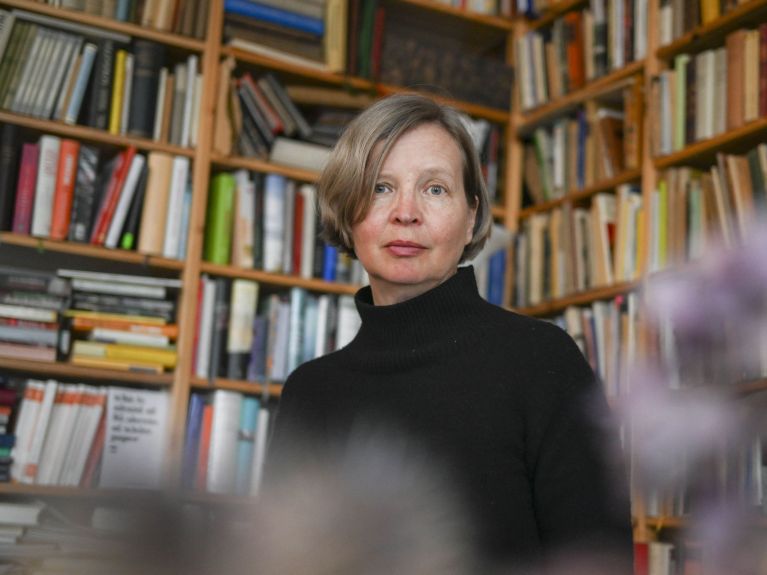Jenny Erpenbeck: a personal view of German history
Jenny Erpenbeck is the first German to win the International Booker Prize. What makes the author so successful abroad? A portrait.

She has long been regarded internationally as one of Germany’s most important contemporary female authors. The German writer has now been awarded the renowned International Booker Prize for her latest novel, “Kairos”. “In luminous prose, Jenny Erpenbeck exposes the complexity of a relationship between a young student and a much older writer. (…) The self-absorption of the lovers, their descent into a destructive vortex, remains connected to the larger history of East Germany during this period,” said Canadian author and chair of the judges Eleanor Wachtel.
“Kairos”, as with so many of the works by this author who was born in East Berlin in 1967, is about the collapse of the GDR in the late 1980s and its consequences. It charts the toxic relationship between 18-year-old Katharina and Hans, who is 34 years her senior. Coming from different generations, they each react differently to the collapse of the state: while for Katharina it marks the beginning of something new, Hans, who as a writer and journalist is among his country’s elite, wants to stop the clock.
Jenny Erpenbeck, who comes from a well-known family of GDR writers, also belonged to this cultural elite. Her grandparents wrote novels, while her father is a well-known physicist, philosopher, psychologist and novel author and her mother works as a translator. “Without this family I wouldn’t be here today,” Erpenbeck said at the award ceremony. She had already been nominated for the Booker Prize five times and in 2015 won the Independent Foreign Fiction Prize, the predecessor of the International Booker Prize, for her novel “The End of Days”.
Radically personal approach to German history
“My writing,” Erpenbeck explains in her 2018 essay “Not a Novel: Collected Writings and Reflections”, “began with reflections on what identity is, and how much we can lose without losing ourselves.” Ever since, she has never tired of telling about life before and after the GDR, partly because in her opinion many West Germans continue to misunderstand this state. “The idea of the country was better than the country itself,” she explained in an interview with the New York Times. And yet, continues Erpenbeck, “there were some kinds of freedom in East Germany that you wouldn’t expect to have, (…) such as not to be forced to expose yourself and shout out all the time about how important you are and what you have reached, to sell yourself.”
International readers love Erpenbeck above all for her radically personal approach to contemporary and past German history. In 2017, renowned New York Times literary critic James Wood even predicted that she would win the Nobel Prize in Literature. That was when her novel “Go, Went, Gone” was published in an English translation. It tells the true story of asylum seekers in Berlin who go on hunger strike at Oranienplatz in Berlin in 2015 to draw attention to their plight. Erpenbeck spent an entire year immersing herself in their lives so as to be able to write a literary work about the refugee crisis.
As Erpenbeck said in an interview with the Goethe-Institut, she is interested in how “politics becomes visible even in people’s bodies”. This interweaving of the private and the political, this sense of the “weight of history” that Booker Prize chair of the judges Eleanor Wachtel talked about in her speech, is what makes Erpenbeck one of the most exciting literary voices of our time.
Dieses YouTube-Video kann in einem neuen Tab abgespielt werden
YouTube öffnenThird party content
We use YouTube to embed content that may collect data about your activity. Please review the details and accept the service to see this content.
Open consent form
